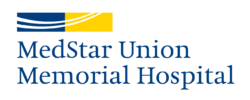Beschleunigen Sie den Erwerb von Fähigkeiten und die chirurgische Bereitschaft.
Bereitstellung einer grundlegenden medizinische Ausbildung während der Aufbau praktischer Fähigkeiten zu einer Herausforderung für medizinische Einrichtungen geworden ist. Arbeitszeitbeschränkungen, die rasante Entwicklung neuer Technologien und medizinischer Implantate haben dazu geführt, dass traditionelle Lernmethoden bei der Ausbildung der nächsten Generation von Chirurgen in Rückstand geraten sind. Ein erheblicher Prozentsatz der chirurgischen Assistenzärzte gibt an, dass sie sich nach Abschluss ihrer Ausbildung nicht bereit fühlen, Eingriffe selbstständig durchzuführen.1,2 Virtual-Reality-Training stellt eine zugängliche, kosteneffektive und bewusste Praxismethodik dar, um Assistenzärzten und praktizierenden Chirurgen zu helfen, eine Kompetenzschwelle zu erreichen oder chirurgische Beherrschung zu erreichen.
















